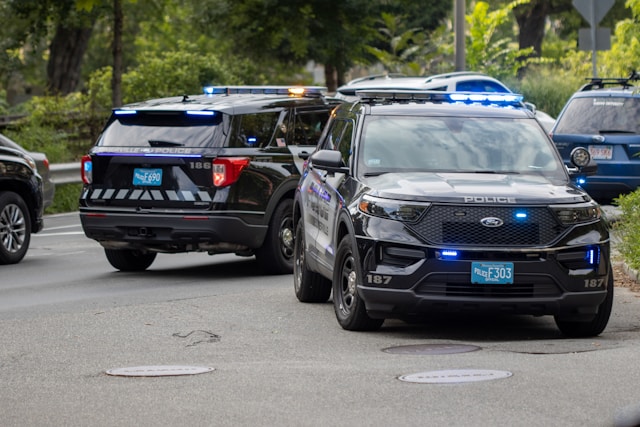Being involved in a car accident can be a stressful and overwhelming experience, but fleeing the scene is never the right course of action. Leaving the scene of an accident, also known as a hit-and-run, is illegal and can have serious legal, financial, and personal consequences. Here’s what happens if you flee from the scene of a car accident.
Legal Ramifications
Leaving the scene of a car accident is a criminal offense punishable by law. In most jurisdictions, hit-and-run laws require drivers involved in accidents to stop their vehicles, exchange information with the other parties involved, and render aid if necessary. Failing to fulfill these obligations can result in misdemeanor or felony charges, depending on the severity of the accident and the extent of the damages or injuries.

Criminal Penalties
The criminal penalties for fleeing the scene of a car accident vary depending on the jurisdiction and the specific circumstances of the case. In general, hit-and-run offenses can result in fines, license suspension or revocation, probation, community service, and imprisonment. Felony hit-and-run charges, typically reserved for accidents involving serious injuries or fatalities, carry harsher penalties, including significant fines and lengthy prison sentences.
Civil Liability
In addition to criminal charges, fleeing the scene of a car accident can expose you to civil liability for damages resulting from the accident. By leaving the scene, you deprive the other parties involved of the opportunity to obtain your insurance information and pursue compensation for their losses. As a result, you may be held financially responsible for property damage, medical expenses, lost wages, and other damages incurred by the victims of the accident.
Enhanced Legal Scrutiny
Fleeing the scene of a car accident can attract heightened legal scrutiny and suspicion from law enforcement authorities. Investigators may use various techniques, such as witness interviews, surveillance footage, and vehicle registration records, to identify and apprehend hit-and-run suspects. Once apprehended, individuals accused of hit-and-run may face additional charges, such as obstruction of justice or tampering with evidence, further complicating their legal situation.
Driver’s License Consequences
Hit-and-run convictions can have severe consequences for your driver’s license and driving privileges. In addition to potential suspension or revocation of your driver’s license, you may be required to attend traffic safety courses, participate in driver rehabilitation programs, or install an ignition interlock device on your vehicle. Reinstating your driving privileges may also be contingent upon satisfying any restitution orders or court-ordered requirements.
Personal and Ethical Considerations
Beyond the legal and financial repercussions, fleeing the scene of a car accident can have significant personal and ethical implications. Leaving the scene demonstrates a disregard for the well-being of others and a failure to take responsibility for your actions. It can also lead to feelings of guilt, shame, and remorse, impacting your mental and emotional well-being in the long term.
What to do Instead of Fleeing the Scene
Fleeing the scene of a car accident is a serious offense with far-reaching consequences. From criminal charges and civil liability to driver’s license sanctions and personal repercussions, the aftermath of a hit-and-run can be devastating. Instead of fleeing, it’s essential to stay at the scene, render aid to those in need, and cooperate with law enforcement and other parties involved. By fulfilling your legal and ethical obligations, you can mitigate the potential harm caused by the accident and demonstrate accountability for your actions. If you are injured in a car accident, speak with an Arizona traffic ticket lawyer for legal guidance and support.



